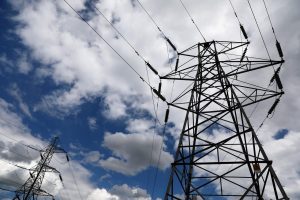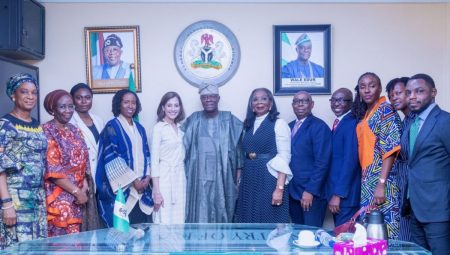
Mkpoikana Udoma
Port Harcourt — The Petroleum and Natural Gas Senior Staff Association of Nigeria, PENGASSAN has charged the federal government to unbundle the country’s electricity national grid, in order to encourage private sector investments in the sector and improve power supply in the country.
National President of PENGASSAN, Comrade Festus Osifo, noted that power supply remains a critical issue plaguing the country, as reliable and consistent electricity was the lifeline of any growing economy.
Osifo speaking at the National Executive Council meeting of the Association in Port Harcourt recently, listed the key challenges in the sector to include, inadequate power generation capacity, dilapidated and weak power infrastructure, as well as lack of investment in the power sector.
According to him, Nigeria’s current electricity generation was insufficient to meet the growing demands of the population and the nation’s industries, thus leading to frequent power outages and load shedding, disrupting the lives of ordinary citizens and impeding economic growth.
To tackle these challenges and improve power supply in Nigeria, PENGASSAN proffered several solutions, including increasing power generation capacity, rehabilitating and upgrading infrastructure, unbundling the national grid, encouraging private sector involvement and promoting energy efficiency.
He said, “The government should focus on diversifying the energy mix by investing in renewable energy sources such as solar, wind, and hydroelectric power. This will reduce our dependency on fossil fuels and ensure a more stable and sustainable power supply.
“Significant investments must be made towards upgrading and modernizing our power transmission and distribution lines. This includes replacing old equipment, improving maintenance practices, and building new infrastructure to meet the demands of a growing population.
“Unbundling of the national grid. The national grid must be unbundled to smaller units scattered across different states of the federation. The government should create a conducive environment for private sector investments in the power sector. This can be achieved through the formulation of favourable policies, providing incentives, and ensuring transparency and accountability in the industry.
“Promoting energy efficiency and conservation: It is crucial to educate citizens and industries about energy-saving practices and incentivize the use of energy-efficient appliances. This will help reduce the overall energy demand and alleviate some pressure on the power grid.”
PENGASSAN also called for a national rebirth and reorientation, the need to tackle insecurity and rising cases of poverty in the country as well as the need for true democracy and credible elections in the country.
To tackle poverty in the country, the PENGASSAN boss said the government must prioritize inclusive economic policies that promote job creation, particularly in sectors with high potential for growth such as agriculture, manufacturing, and technology.
Osifo regretted that despite being blessed with abundant natural resources, Nigeria’s economy has not translated into widespread prosperity for its citizens, noting that corruption, opaque governance, inadequate access to education and healthcare exacerbates the cycle of poverty.
“To address these challenges, we must invest in education and healthcare, ensuring their availability and affordability to all citizens. This includes improving the quality of education by providing proper infrastructure, qualified teachers, and relevant curricula. It also entails strengthening healthcare systems and increasing the availability of essential services and medications.
“Additionally, corruption and opaque governance contribute significantly to the increase in poverty. Corruption diverts resources from essential public services and undermines trust in government, leading to a lack of implementation of effective policy frameworks and programs to mitigate poverty.
“To combat corruption and improve governance, it is imperative to establish transparent and accountable institutions. Strengthening anti-corruption agencies, enforcing strict penalties for corrupt practices, and promoting a culture of transparency.
“By investing in infrastructure, providing access to finance, and supporting entrepreneurship, we can generate employment opportunities and empower individuals and communities.”



